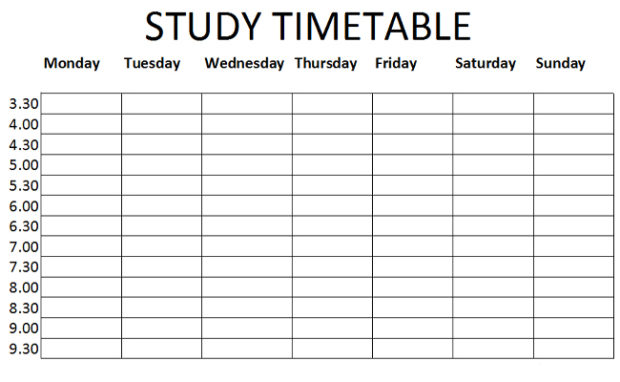How to Focus on Studying: Take These Steps!
Whether you’re in high school, college, or taking post-graduate courses, you’re faced with the question of “how to focus on studying” every now and then. And if you’re in college, or doing your masters, it can be very difficult to manage working long hours on your student job while staying focused on school.
As we all know, school is not only meant for academics; there’s also a fun part that everyone wants to be a part of. For instance, you are maybe someone that loves to play or watch sports, play video games, hangout with friends, or even party. If you immerse yourself in these activities without control, it will become very challenging to meet academic deadlines and stay focused.
This particularly affects college freshmen and students that just picked up a post-grad course, because they need to manage deadlines both in their job and in school. If you’ve been struggling with this, here’s a few tips that will teach you how to focus on studying amidst every situation.
Set Study Goals

If you want to learn how to focus on studying, you need to take this first step. You need to become more aware of your environment, and thereafter prioritize your life. Over the course of setting your priorities, you will need to remember the most important question, which is, “Why am I in school?” Of course, you are still able to hang out and take part in fun activities, but you need to come to terms with the fact that you didn’t travel several miles from home to only have fun, but to get an education. Once you’re able to understand this, you’re well on your way.
Develop a Study Schedule
After setting your study goals, you will have realized and understood your primary purpose for being in school. Now, the next step that will steer you in the right direction, and help you learn how to focus on studying, is a weekly timetable. Allocate more time for the most important endeavours, and reduce the time that you spend on less important activities. Your timetable should cover every detail of your daily activities, from when you wake up, when you eat your meals, when you study, and when you go to bed. How you arrange your timetable, and how much time you allocate, is dependent on you and your schedule. It is also important to accommodate some rest/play time in your routine, lest it gets boring. Once you develop your timetable, you will become more organized and have greater control over your academic life.
Related Articles
Top 10 Debt Payoff Planner Apps
How to Calculate Debt Consolidation Payments
Learn to Say No
Now that you have your daily routine set up, it is important to be consistent and develop a habit of your routine. This doesn’t mean you shouldn’t get involved in any social activity; it means that you should make necessary cutbacks to save more time and money. For instance, try to dine out at most once a week; if you’re currently doing more than this, you should consider reducing it. If you go to the movies every week, you should consider allowing a two-week interval between every movie. Also, if you have friends that ask for your company when they’re going shopping, and it clashes with your valuable study time, let them know that you’re busy, and can’t go. Tell them what time would be better for you. The long and short of it is, you should learn to say no when necessary.
Focus on Priorities
Ever heard the saying, “You’re totally in charge of your life?” Of course, this is true! On your journey to learn how to focus on studying, only you can help yourself. And if you choose not to, the aftermath would be yours to bear. Always remember your primary reasons for being in university, which are to study, learn, and graduate. Once you lose sight of this, no fun activity will feel right or enjoyable. It is important to constantly remind yourself of your study goals and priorities. You can write these things down in a diary or notepad that you carry with you at all times. So, every time you see these goals, you recommit yourself to them, and regain direction towards your primary goal. Anything that serves as a constant reminder as to why you’re in college will suffice; a few posters or motivational quotes are helpful options.
If you are still learning how to focus on studying, these tips will prove fruitful. You will find answers to the timeless question, “How to focus on studying?” You will begin to feel more organized and confident about your school work, and maintain a better balance between fun and academics.




